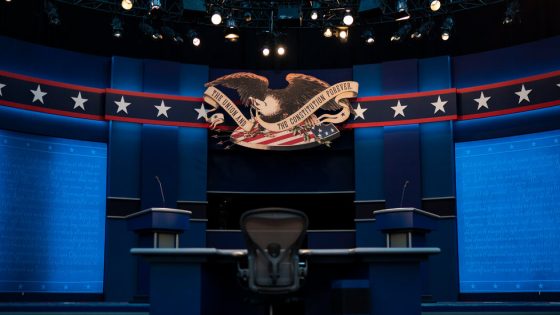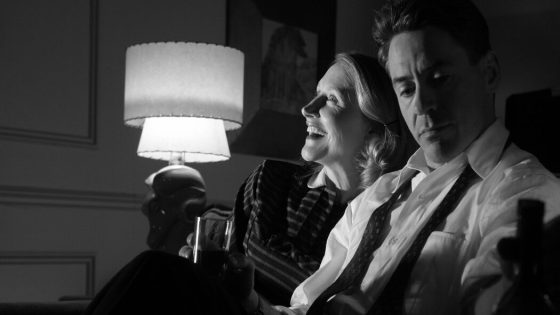In an unusual move, the five major broadcast and cable news networks have prepared a joint open letter that urges President Biden and former President Donald J. Trump to participate in televised debates ahead of Election Day, according to two people with direct knowledge of their plans.
The letter — endorsed by ABC, CBS, CNN, NBC and Fox News — thrusts into public view a question that has swirled within media and political circles: whether the presidential debates, one of the nation’s last remaining mass civic rituals in a polarized age, will occur this year at all.
“We, the undersigned national news organizations, urge the presumptive presidential nominees to publicly commit to participating in general election debates before November’s election,” the letter reads, according to a draft version obtained by The New York Times.
The letter has not yet been finalized, and the networks are also seeking endorsements from other leading national news organizations, including newspapers.
Mr. Biden has repeatedly declined to commit to participating in the three debates scheduled for September and October. His aides say they are concerned that the Commission on Presidential Debates, the nonpartisan group that has organized the telecasts since 1988, will be unable to enforce the rules when Mr. Trump takes the stage.
Mr. Trump has vowed to debate, and has taken to taunting Mr. Biden for not following suit. But Mr. Trump’s track record is mixed: In 2020, he pulled out of a debate against Mr. Biden at the last minute, prompting its cancellation, and in the recent Republican primary he refused to appear onstage, even once, with his opponents.
The television networks’ letter was organized as a response to the ongoing uncertainty, said the people, who spoke on the condition of anonymity to describe private discussions about an ongoing effort.
“General election debates have a rich tradition in our American democracy, having played a vital role in every presidential election of the past 50 years dating to 1976,” the draft letter reads. “In each of those elections, tens of millions have tuned in to watch the candidates debating side by side, in a competition of ideas, for the votes of American citizens.”
Contacted on Tuesday, the five TV networks either did not comment or deferred to the text of the letter.
The Commission on Presidential Debates has already announced dates, venues and eligibility requirements for this year’s matchups. “Though it is too early for invitations to be extended to any candidates, it’s not too early for candidates who expect to meet the eligibility criteria to publicly state their support for, and their intention to participate in, the commission’s debates planned for this fall,” the draft letter reads.
“If there is one thing Americans can agree on, during this polarized time, it is that the stakes of this election are exceptionally high,” the letter continues. “There is simply no substitute for the candidates debating with each other, and before the American people, their visions for the future of the nation.”
If no debate were to occur this year, it would be a sea change for the modern presidential campaign cycle. In every election since 1976, Americans have witnessed at least one live televised encounter between the leading contenders.
The debates are by far the most-watched moments of a presidential campaign, and in an increasingly partisan media environment, they offer a rare chance for the candidates to spar face to face outside the presence of spin doctors or sycophantic pundits. They are also simulcast on every major cable and broadcast network, a throwback to a more quaint media age when Americans absorbed information from the same group of news sources.
The Biden campaign has not ruled out agreeing to the debates, according to a person with direct knowledge of the discussions, who requested anonymity to share details intended to be private. But the campaign does not see an advantage to publicly committing to participate this early in the year, the person said.
Mr. Biden’s team was also incensed in 2020 at proceedings during the first presidential debate in Cleveland. A former aide has said that Mr. Trump tested positive for the coronavirus several days before the event, during which Mr. Trump stood several feet away from Mr. Biden. The debate commission had established medical testing protocols that Biden aides believe Mr. Trump managed to elude.
That debate was notably chaotic, with Mr. Trump refusing to follow the instructions of the moderator, Chris Wallace, and frequently talking over Mr. Biden. It led the debate commission to tweak its rules for the final 2020 debate, allowing a producer to mute each candidate’s microphone while his rival had the floor.
Several of Mr. Biden’s closest advisers are longtime critics of the Commission on Presidential Debates. Anita Dunn, who spearheads Mr. Biden’s communications strategy, was a lead organizer of a 2015 report that called for a wholesale restructuring of the presidential debate system. That report, which was coauthored by Ron Klain, formerly Mr. Biden’s White House chief of staff, argued that the commission’s debate format should be changed to reflect a more modern media environment.
Mr. Trump has sought to capitalize on Mr. Biden’s reluctance to commit to the debates. “It is important, for the Good of our Country, that Joe Biden and I Debate Issues that are so vital to America, and the American People,” he wrote in a Super Tuesday post on Truth Social. “Therefore, I am calling for Debates, ANYTIME, ANYWHERE, ANYPLACE!” (The haphazard capitalization is verbatim.)
Jason Miller, a senior adviser to the Trump campaign, repeated that pledge on Tuesday, adding, in a statement, “Biden won’t get away with the basement routine this time.”
In the past, Mr. Trump has railed against the Commission on Presidential Debates, accusing it of a pro-Democratic bias and claiming, with no proof, that the commission interfered with his microphone in 2016. Mr. Trump also supported a pledge by the Republican Party to boycott future debates organized by the commission, although that stance appears to have softened.
“The Debates can be run by the Corrupt DNC, or their Subsidiary, the Commission on Presidential Debates (CPD),” Mr. Trump wrote in his Super Tuesday post. In fact, the commission is an independent, nonpartisan entity with no link to the Democratic Party.
The Biden campaign on Tuesday referred to Mr. Biden’s past remarks about the debates. Asked by a reporter in March if he would debate Mr. Trump, the president replied, “It depends on his behavior.” He has also joked about Mr. Trump’s demands for a debate, saying, “If I were him, I’d want to debate me, too. He’s got nothing else to do.”
Senator Chris Coons of Delaware, one of Mr. Biden’s closest allies, invoked the chaotic Cleveland debate when he was asked about the issue last month on CNN. “Donald Trump just busted through every possible rule or regulation of decency or decorum,” Mr. Coons said. Pressed by Jake Tapper on whether Mr. Biden should debate this year, Mr. Coons equivocated. “I think that’s up to him,” he said.
The format of the debates is not hugely different from the first televised bouts, between John F. Kennedy and Richard Nixon in 1960. And while some mass media events like the Oscars and Grammys have waned in viewership, Americans still tune in for the debates, in enormous numbers: Mr. Trump’s first debate with Hillary Clinton in 2016 is the highest-rated on record, with 84 million people watching. In 2020, an average of 68 million people watched the Biden-Trump debates, far outstripping audiences for political conventions or a State of the Union address.
Source Agencies



